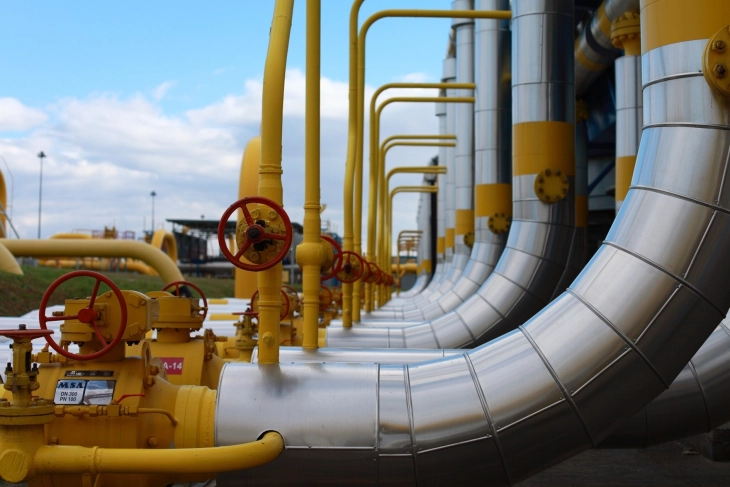Russia assures European gas supplies despite Belarus threats

Berlin, 12 November 2021 (dpa/MIA) - Russia has promised to secure gas supplies to Europe, following threats from Belarus to interrupt energy deliveries over EU sanction threats in the stand-off about migrants trying to reach the EU from Belarus.
"Russia has been and always will be a country that fulfils its obligations to supply gas to European consumers," Kremlin spokesperson Dmitry Peskov was quoted as saying by news agency Interfax on Friday.
He assured that Russia's "reliable deliveries" would continue regardless of Minsk's actions.
Belarusian strongman Alexander Lukashenko has threatened to block the Yamal Europe pipeline that delivers gas from Russia to Europe via Poland and Belarus, in the light of possible new sanctions from the European Union.
The Foreign Ministry in Minsk on Friday warned the EU against punitive measures, threatening a "tough reaction."
Only a small proportion of gas reaches Europe through pipelines that cross Belarusian territory, however. Most arrives through Ukraine and the Baltic Nord Stream 1 pipeline.
Russian state-owned company Gazprom cut supplies via Belarus by 40 per cent on Friday, the state agency Ria Novosti reported in Moscow.
Instead, Gazprom has now increased transit via Ukraine, according to Kiev.
"Daily transit volumes have returned to the contract volumes of 109 million cubic meters after a reduction to almost 57 million cubic meters in the first days of November," the head of the operator of Ukraine's gas transmission system, Serhiy Makohon, announced on Facebook.
The European Union has accused Lukashenko of deliberately encouraging a flow of migrants by air to Minsk and then sending them on under guard to his country's borders with Poland, Lithuania and Latvia in retaliation for Western sanctions on Belarus for political repression.
Thousands are now penned in and stranded along those borders - which also mark the EU's external border - after the national authorities increased security in the frontier area to prevent entry.
Polish security forces had to intervene several times late on Thursday night when Belarusian soldiers tried to force a group of 35 migrants across the border close to the town of Kuznica, the PAP news agency reported on Friday, quoting a local police spokesperson.
According to the report, the group consisted mainly of women and children.
Much of the information from the border area cannot be conclusively verified because independent journalists have so far been denied access.
The WHO Regional Director for Europe, Hans Kluge, on Friday called for the health of migrants in the area "to be protected and depoliticized."
According to a survey conducted by a team of WHO experts sent to the area, many of the migrants on the Belarus-Lithuania border are in need of medical attention.
"I am very concerned about the thousands of vulnerable people who are stranded in no-man's land on Belarus' borders with Poland, Latvia and Lithuania, at the mercy of the weather as winter fast approaches," Kluge said in a statement.
Meanwhile, more than 100 illegal migrants on average are reaching Germany every day after travelling through Poland from Belarus, the German Federal Police said on Friday.
Since the beginning of the month, a total of 1,488 illegal entries related to Belarus had been recorded, most of them along the border with Poland, the police said. The figure since the start of the year is 9,329.
The crossings have increased sharply since the summer, with most of the migrants originating from Iraq, with considerable numbers also from Syria and Afghanistan.
Addressing the German parliament in Berlin on Thursday, Foreign Minister Heiko Maas assured Poland of Europe's solidarity in the crisis.
He accused Lukashenko of playing an unscrupulous game with human lives. "The problem is Lukashenko and Belarus and the regime that exists there," he said, adding that Poland deserved European solidarity.
Around 8,000 people from Iraq's northern region of Kurdistan are stuck at the border between Belarus and Poland, Kurdistan Regional Government spokesperson Jotiar Adil told the Kurdish network Rudaw.
He said the Kurdish government is working on providing humanitarian aid to them.
"Unfortunately, Belarus is well prepared to use these people as a political trump card against the European Union,” he added.
The Iraqi embassy in Moscow said on its website it will organize flights to evacuate those who wish to return to the country.







